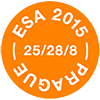RS Coordinators
Agnieszka Kołodziej-Durnaś, University of Szczecin, Szczecin, Poland
akodu(at)whus.pl
Frank Sowa, Institute for Employment Research (IAB), Nuremberg, Germany
frank.sowa(at)iab.de
General call for papers:
In general, there are many reasons to focus research on maritime spaces. Maritime spaces include oceans as well as coastal areas, spaces which are at risk nowadays. Ecological crises (overfishing, decline in biodiversity, climate change, ocean pollution), economic crises (de-industrialization, whaling moratorium, structural change, development of alternative industries) and cultural crises (destabilization of collective identities of seaside and island inhabitants, cultural practices of sharing, inhabitants’ knowledge, local traditions, transformations of maritime professions) cumulate in these maritime spaces. So far research on maritime issues is dominated by natural science disciplines. The protection of maritime natural sources and the need for sustainable development demands research on the ‘human factor’ and a sociological perspective on maritime spaces
1.General Session: History and Future Perspectives of Maritime Sociology
Sociologists’ interest in society and sea has a long and rich tradition, yet it remains still in its many areas undiscovered for many social scholars. As a sociological sub-field maritime sociology needs both the recapitulation of its proto-history and meta-theoretical elaboration of its future development in an academic world. Also the prospects of applying various empirical approaches should be discussed by the researchers interested in exploring the mutual relations of society and sea.
2.Maritime Professions and Inequality
The dynamics of economic development in recent decades has led to the disappearance of traditional images while new opportunities in the maritime sector are emerging. While the maritime economy in post-communist countries often experienced some collapse, in the western part of Europe it was exposed to intensive technological changes as well as threatened by strong competition e.g. from Asia. The changing positions of maritime professions in the social structure, cultural differences associated with the labour milieu of seafarers, fishermen, ship yard workers, gender discrimination, diversity management may constitute possible topics of papers for this session.
3.Sociological Imagination on Maritime Issues: Sustainable Development and the Sea
Focusing on the issue of ocean sustainability this session aims to explore, examine, and reflect the role of sociology. In this way this session addresses more and more significant challenge for the humankind – to wake up people’s consciousness to leave next generations a pure and friendly world. It seems that the Mills’ concept of sociological imagination has been in recent both academic and public debates including the idea of sustainable development. It is a special responsibility of maritime sociologists to become a medium between the society at large and experts to protect both biological and social environment of maritime areas and the sea as labour milieu.
4.Knowledge of the Sea: Integrating local and indigenous knowledge with scientific knowledge
The knowledge of marine ecosystems provides a good indication of the current status of the sea and is seen as essential in the field of natural resource management. This implies a profound and detailed knowledge of the marine ecosystems and marine animals. However, there are different types of knowledge – local, users’, indigenous, scientific knowledge – which should be integrated into decision-making processes or environmental governance. The so-called co-management regimes are institutional arrangements in which government agencies with jurisdiction over resources and user groups cooperate and agree on e.g. data gathering and analysis, harvest allocation decisions or enforcement of regulations. Co-management incorporating stakeholders offers major opportunities for incorporating tacit knowledge, skills, and practices into formal resource management regimes and takes place at a regional level that is more meaningful to most people. This sessions deals with various kinds of co-management regimes, case studies of knowledge-integration in practice and the analysis of asymmetric power relations.
5.Sea and Culture: The Construction of Identities in Seaside-Communities and Port Cities
Occupational identities and cultural identities of coastal communities and port cities are influenced by the sea and seaside activities. This session welcomes papers dealing with aspects of specific culture in seaside areas. Is there a maritime culture or maritime cultures? Are port cities a different kind of cities? Are social bonds in maritime regions other than these in non-maritime ones? Can sociologists speak about specific life-styles, norms and values system, organizational culture referring to seaside communities and maritime industry companies? All these questions and other ones associated with sea and culture topic may be addressed during this session.
Notes for authors
Authors are invited to submit their abstract either to the general session or any specific session. Please submit only to one session. After abstract evaluation, coordinators will have the chance to transferpapers between sessions where applicable.
Abstracts should not exceed 250 words. Each paper session will have the duration of 1.5 hours.Normally sessions will include 4 papers.
Abstracts must be submitted online to the submission platform, see below. Abstracts sent by emailcannot be accepted. The Research Stream coordinator will organize the peer-reviewing of the abstracts;the letter of notification will be sent by the conference software system in early April 2015.
Abstract submission deadline (extended): 15th February 2015
Abstract submission platform: www.esa12thconference.eu
If you have further questions regarding the conference, please visit the conference website. For furtherinformation on the Research Stream, please contact the RS coordinator.






